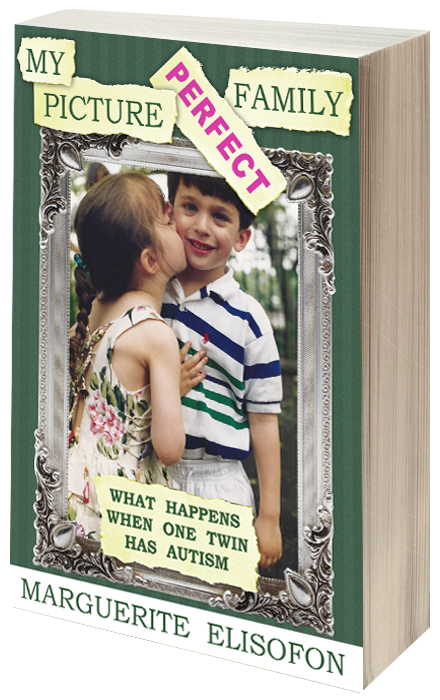 Are most “special” schools tackling sex education so kids on the spectrum can understand the physical and emotional transitions that accompany puberty? I’m guessing the answer is a resounding “no.” Sex education is a difficult subject for neurotypical pre-teens and their teachers—fraught with giggles and embarrassment—but some foundation is usually provided. My son came home from school in the sixth grade with a book explaining “the birds and bees,” complete with diagrams of penises in different sizes and shapes. (!!) He and his friends were instructed to go to the drugstore and purchase condoms as homework. My son told me that his female classmates received the girls’ version of the book and (I hope) the same homework. All students were provided with formal vocabulary as well as street name equivalents to describe sex acts and anatomy. Not so for my daughter Samantha in her special ed schools. She didn’t come home with any books or
Are most “special” schools tackling sex education so kids on the spectrum can understand the physical and emotional transitions that accompany puberty? I’m guessing the answer is a resounding “no.” Sex education is a difficult subject for neurotypical pre-teens and their teachers—fraught with giggles and embarrassment—but some foundation is usually provided. My son came home from school in the sixth grade with a book explaining “the birds and bees,” complete with diagrams of penises in different sizes and shapes. (!!) He and his friends were instructed to go to the drugstore and purchase condoms as homework. My son told me that his female classmates received the girls’ version of the book and (I hope) the same homework. All students were provided with formal vocabulary as well as street name equivalents to describe sex acts and anatomy. Not so for my daughter Samantha in her special ed schools. She didn’t come home with any books or ask any questions, the way my son did. NOTHING about menstruation, pregnancy, STDs or contraception was EVER mentioned— not in junior high OR in high school. (!?) Fast forward 15 years, maybe some schools are stepping up to the plate and providing students on the spectrum with some form of sex education. Or maybe schools are still too busy struggling to teach reading, writing and math to teenagers with autism to worry about sex education.
ask any questions, the way my son did. NOTHING about menstruation, pregnancy, STDs or contraception was EVER mentioned— not in junior high OR in high school. (!?) Fast forward 15 years, maybe some schools are stepping up to the plate and providing students on the spectrum with some form of sex education. Or maybe schools are still too busy struggling to teach reading, writing and math to teenagers with autism to worry about sex education. 

If your child is not receiving sex education at school, here’s what I’d recommend to parents:
- Start talking to your child early; don’t wait until the hormones are raging. Go to the library or buy a developmentally appropriate book on sex education, preferably with lots of pictures and diagrams. If your child doesn’t read, or has difficulty with comprehension, read the book together. When appropriate, same sex parents might consider show and tell.
- Go to your gynecologist or urologist to see if you can show your child a three dimensional model of their internal sex organs. Hopefully, your doctor or nurse will be sufficiently compassionate and matter-of-fact to be able provide a basic introduction. (If not, consider finding a doctor who is more knowledgeable and autism-friendly).
- With all of the TV and film attention focused on autism these days, perhaps it will soon be possible to acquire a sex education film for students on the spectrum. Such a film, or series of films, would have to be carefully organized and broken down by subject into what my daughter calls “small manageable bites.” Menstruation, contraception, STDs and pregnancy would have to be dealt with one at a time. Equally important would be teaching appropriate behavior and self-control. Both genders need a clear understanding of consent, “no means no,” and rape.

- Try to help your son or daughter understand that their body changes are a natural part of maturation. Even though most ASD kids HATE change, ALL kids LOVE the idea of being a grown up, just like Mom and Dad. For girls, be sure your daughter understands that her first period is a sign of her womanhood, not “a curse,” but something to celebrate. (Samantha and I went for a special “girl’s lunch”). For moms who aren’t squeamish, I recommend demonstrating tampon insertion and then observing your daughter practice, because ASD kids learn best from hands-on experience. You don’t want your daughter to hurt herself or forget to thoroughly wash her hands. Be prepared for accidents, and have your daughter carry extra underwear. Even with all my careful demonstrations and instructions, Samantha mysteriously soiled her underwear until I discovered that she was failing to remove the cardboard tampon holder!

- For the boys, changes such as growing body hair, a deeper voice, and an enlarging penis, should be discussed with Dad. At this time, it’s also essential for boys with autism to understand how to behave appropriately with girls and that includes “no means no.”
 Most young teenagers experiencing puberty are insecure about their appearance and popularity, but nearly all ASD kids are even more confused and lonely. While ASD kids may not be able to articulate their worries and questions, parents and even older siblings should reassure their sister or brother that all body and mood changes— pimples, hair, body odor—are normal.
Most young teenagers experiencing puberty are insecure about their appearance and popularity, but nearly all ASD kids are even more confused and lonely. While ASD kids may not be able to articulate their worries and questions, parents and even older siblings should reassure their sister or brother that all body and mood changes— pimples, hair, body odor—are normal.- Parents should introduce deodorant and acne medication, teaching adult hygiene as part of sex education AND life skills. Kids with ASDS often aren’t as acutely aware as their neurotypical peers that pimples, body odor and unwanted hair may cause them further rejection (and possibly bullying) by their classmates. Young teens with autism deserve to look, feel and behave their best. Dismissing the need for sex education because academics and social skills are already challenging for ASD kids denies them their legally mandated right to an “appropriate” education. What could be more appropriate AND ESSENTIAL than providing sex education to this ever-expanding subgroup of our next generation?






 Marguerite Elisofon is a New York City writer and the author of My Picture Perfect Family, a memoir about how her family navigated life with a child on the autistic spectrum before the internet and support groups existed. She also blogs about parenting young adults and disability related issues in The Never Empty Nest. Her writing has been featured in a variety of publications, including Time and NY Metro Parents magazine, and her family’s story has been featured by the NY Post, Fox News, The Daily Mail, and on Jenny McCarthy’s Dirty Sexy Funny radio show. A Vassar graduate, Marguerite was born and raised in New York City, where she still lives with her husband, Howard, in their mostly-empty nest. She is available to speak about a wide variety of issues relating to twins, parenting, and autism.
Marguerite Elisofon is a New York City writer and the author of My Picture Perfect Family, a memoir about how her family navigated life with a child on the autistic spectrum before the internet and support groups existed. She also blogs about parenting young adults and disability related issues in The Never Empty Nest. Her writing has been featured in a variety of publications, including Time and NY Metro Parents magazine, and her family’s story has been featured by the NY Post, Fox News, The Daily Mail, and on Jenny McCarthy’s Dirty Sexy Funny radio show. A Vassar graduate, Marguerite was born and raised in New York City, where she still lives with her husband, Howard, in their mostly-empty nest. She is available to speak about a wide variety of issues relating to twins, parenting, and autism. 
Wow, this piece of writing is good, my sister is analyzing such things, so I am going to let know her. https://Www.Yahoo.net/
Thanks. Hope your sister finds it helpful.
I’m really impressed with your writing skills and also with the layout on your weblog.
Is this a paid theme or did you customize it yourself?
Anyway keep up the excellent quality writing, it is rare to see a
great blog like this one nowadays.